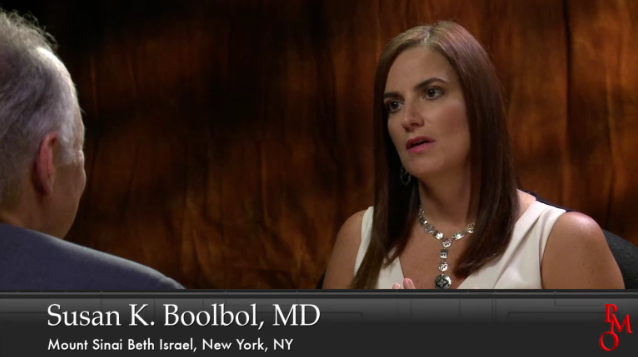Breast Cancer
Susan E. Appling, Lisa Gallicchio, Kathy J. Helzlsouer, Dawn Henninger, Ryan MacDonald, Shannon Manocheh, Susan Scarvalone, Arti P. Varanasi
The authors describe the development of a web-based navigation application, study design, conduct of the study, and the results of the usability assessment of the navigation application by trial participants.
Patient navigation is a patient-centered healthcare delivery method that assists patients in overcoming barriers to oncology care throughout the cancer care continuum.
Samantha Muktar, MBBS, MRCS, BMedSci, Paul T. R., Thiruchelvam, BSC, MBBS, FRCS, PhD, Dimitri Hadjiminas, MPHi, FRCS
Patients with breast cancer preferred standard clinician-led care to a patient-led process after initial treatment, as well as clinical follow-up by a medical oncologist or breast cancer surgeon. Assessment of patients’ expectations can lead to a follow-up program that meets their needs.
San Francisco, CA—Sexual dysfunction is prevalent
in women with breast cancer, and is a consequence
of treatment that pre- and postmenopausal women
receive. As reported at the 2015 Breast Cancer Symposium,
however, the safety and efficacy of available treatments
remain understudied at this time.
Fertility and early menopause after cancer can pose
challenging emotional and medical issues for patients
and their clinicians. Survivors who become
infertile because of their cancer treatment are at an increased
risk for emotional distress and are often affected
by unresolved grief and depression, according to Ann H.
Partridge, MD, MPH, Medical Oncologist, Dana-Farber
Cancer Institute, Boston.
With the increasing number of cancer survivors and their complex needs, new models of care are needed to aid patients in their transition to survivorship care. An individualized treatment summary and survivorship care plan can help patients and healthcare providers smoothly transition to survivorship care in a community-based setting.
We conducted a survey of patients who were identified from the Baystate Medical Center tumor registry who presented with breast cancer between 1997 and 2007. The women had ongoing follow-up with a medical oncologist or with a breast cancer survivorship clinic with guideline-based surveillance but no survivorship care plan (SCP) and were initially treated by the present investigators. After confirmation of study eligibility (stage I-III disease, no distant relapse, age >18 years, able to complete questionnaires, and 1-10 years since diagnosis), an invitation-to-participate letter was sent by each patient’s physician.
An Interview with Stephen C. Malamud, MD, and Susan K. Boolbol, MD, of Mount Sinai Beth Israel Hospital
Dr Stephen C. Malamud and Dr Susan K. Boolbol consider the clinical utility of the Breast Cancer IndexSM (BCI) as a test that separates those patients who are more likely to benefit from those who are unlikely to benefit from extended endocrine therapy.
Dr Stephen C. Malamud and Dr Susan K. Boolbol discuss the circumstances in which they would use the Breast Cancer IndexSM(BCI) to assist in determining whether to extend the adjuvant therapy of women with breast cancer beyond 5 years.




